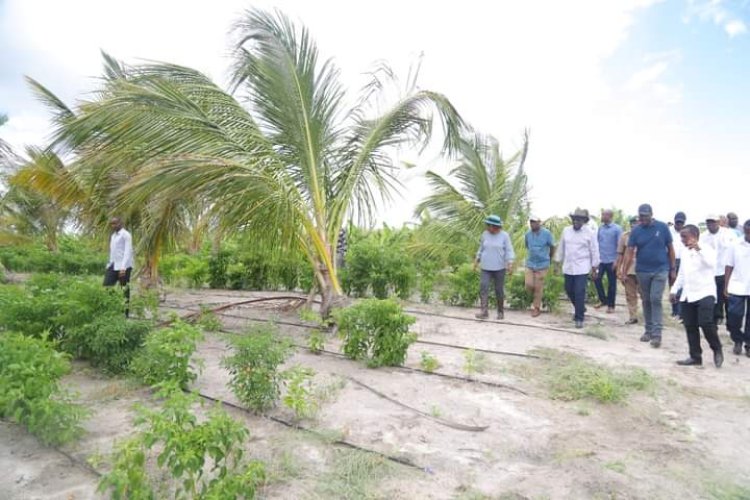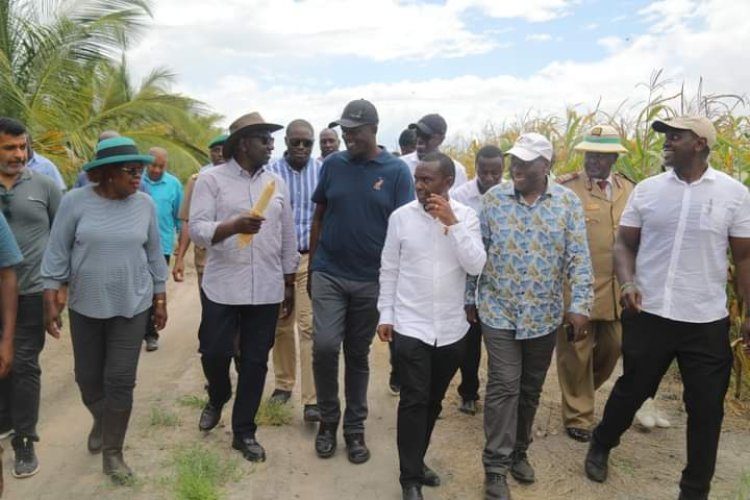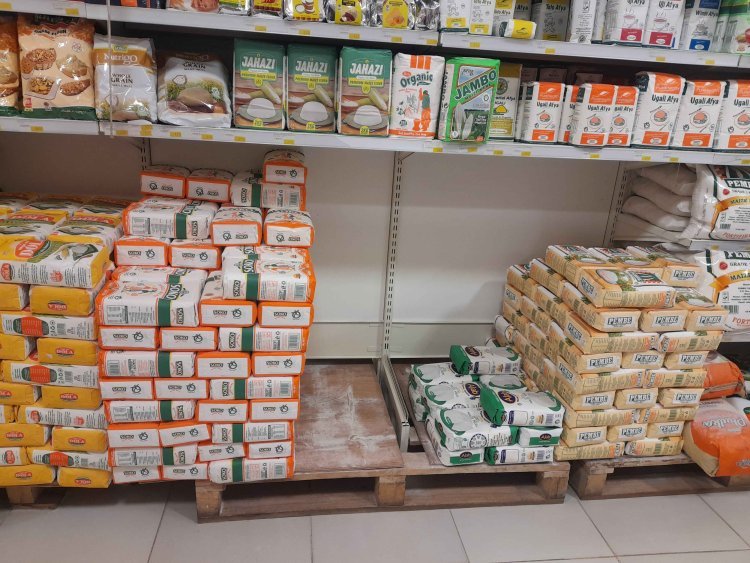Mixed Reactions Over Ruto's Revocation Of Galana Kulalu Settlement Scheme
The Kenya Kwanza government was planning to revamp the project through a public-private partnership (PPP)...

President William Ruto's announcement on Tuesday, January 3 that he would revive the Galana Kulalu Irrigation scheme to boost food production in the country has generated mixed reactions.
The Kenya Kwanza government was planning to revamp the project through a public-private partnership (PPP) with the National Irrigation Authority (NIA).
Under the new plan, the initial 10,000 acres of the project will be developed for crop production starting in February, with another 10,000 acres to be prepared for production within the next six months.

President William Ruto with other governors touring the Galana-Kulalu project on January 3, 2023. /WILLIAM RUTO
The government will also begin construction on a dam in April in order to bring an additional 350,000 acres under production. A model for PPP food production on these 350,000 acres is expected to be developed within the next six months.
"After an extensive tour with National and County Government leaders of Galana/Kulalu National Food Security Project today, I direct as follows: (I) The planned subdivision into settlement parcels is revoked/cancelled; (II) Private Sector and GOK (the National Irrigation Authority) under a Public–Private Partnership (PPP) to work on the ready 10,000 acres to produce food starting with maize in February.
"The next 10,000 acres be prepared for production in 6 months under PPP: (I) GOK to construct a dam beginning April to bring another 350,000 acres under food production; (II) GOK to work out a model for PPP food production in the 350,000 acres to be ready in 6 months. All actors to execute timeously," Ruto stated in part.
Governor's Issa Timamy (Lamu), Gideon Mung'aro (Kilifi), Abdullswamad Sherrif Nassir (Mombasa), Johnson Sakaja (Nairobi) and Cabinet Secretary for Water, Sanitation and Irrigation Alice Wahome were present when President Ruto toured the facility.
The move to revamp the project was met with comments from some netizens who believed that the main drivers in terms of food security lies with the farmers.
"Galana Kulalu project is good but silver bullet on food security lies on focusing on farmers," Makau Muli wrote.
"I think we need to audit the Galana Kulalu project. Look at the areas that are teething and having a framework on making the project work in the long term," added Evans Njomo.
"Galana Kulalu will not help in any way since by the time the maize will be ready how many kenyans will have died? The best is the GMO," Vinny however objected.
The project, which was initiated in 2014 by the Kenyan and Israeli governments, was intended to cultivate around one million acres of the Galana Kulalu complex in order to inject 41 per cent more maize, the country’s staple food, into the market.
However, the project faced delays and controversy surrounding the misappropriation of funds, leading to its termination in 2019. The Israeli government had expressed disappointment in the failure of the project, which marked the first time an Israeli-funded project had failed in the country’s 70-year history.
“Galana-Kulalu project was destroyed by cartels made up of maize importers and millers. They were the reason the project was deferred from the beginning.
“This has dampened the spirit of the business sector in Israel. It is sad for the country. We have not given up, but this is sending very bad signals. Some people might fear investing," said former ambassador Noah Gendler.
The revamping of the scheme came hours after Agriculture Cabinet Secretary Mithika Linturi promised to lower the cost of unga and rice by end of February 2023.

Maize flour being sold at a supermarket along Thika Road. /MARVIN CHEGE.VIRALTEAKE






